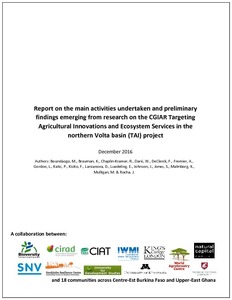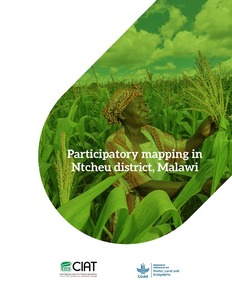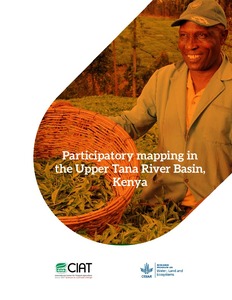Mission
To reduce hunger and poverty, and improve human nutrition in the tropics through research aimed at increasing the eco-efficiency of agriculture.
People
CIAT’s staff includes about 200 scientists. Supported by a wide array of donors, the Center collaborates with hundreds of partners to conduct high-quality research and translate the results into development impact. A Board of Trustees provides oversight of CIAT’s research and financial management.
Values
- Shared organizational ethic
- We respect each other, our partners, and the people who benefit from our work. We act with honesty, integrity, transparency, and environmental responsibility in all of our joint endeavors.
- Learning through partnerships
- We work efficiently and pragmatically together and with partners. Considering our diversity to be a key asset, we adapt readily to change and strive to improve our performance through continuous learning.
- Innovation for impact
- We develop innovative solutions to important challenges in tropical agriculture, resulting in major benefits for the people who support, participate in, and profit from our work.
Members:
Resources
Displaying 161 - 165 of 958The Environment is Life
This participatory video titled 'The Environment is Life' was filmed and produced by a group of 11 members from Mwangoi and Malindi villages Lushoto District, Tanzania. With this video, they want to communicate the message 'people should conserve and protect the environment so that they live a good and healthy life'. Through the film they demonstrate how they protect the environment, improve their yields, and the systems they use.
Targeting agricultural innovations and ecosystem service management in the northern Volta basin
Report on the main activities undertaken and preliminary findings emerging from research on the CGIAR Targeting Agricultural Innovations and Ecosystem Services in the northern Volta basin (TAI) project
The CGIAR Water, Land and Ecosystems research project on Targeting Agricultural Innovations and Ecosystem Services in the northern Volta basin (TAI) is a two year project (2014-2016) led by Bioversity International in collaboration with 11 institutes: CIAT, CIRAD, International Water Management Institute (IWMI), King’s College London (KCL), SNV World Burkina Faso (SNV), Stanford University, Stockholm Resilience Centre (SRC), University of Development Studies Ghana (UDS), University of Minnesota, University of Washington, and the World Agroforestry Institute.






